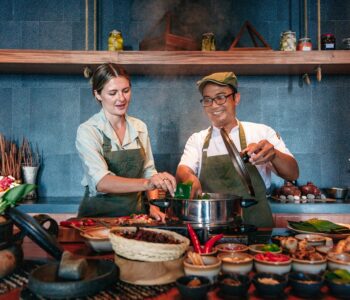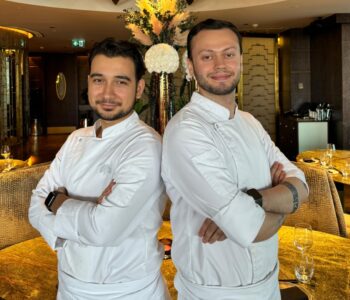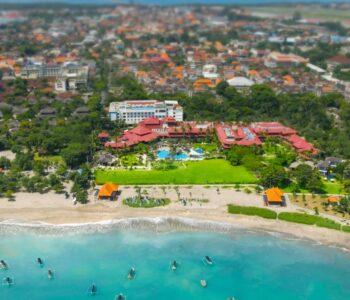Discova, the Flight Centre owned destination management company, launches a community development project aimed to revive the growth and prosperity of Manggis Village locals through educational programmes on agricultural development, land regeneration and women’s empowerment.
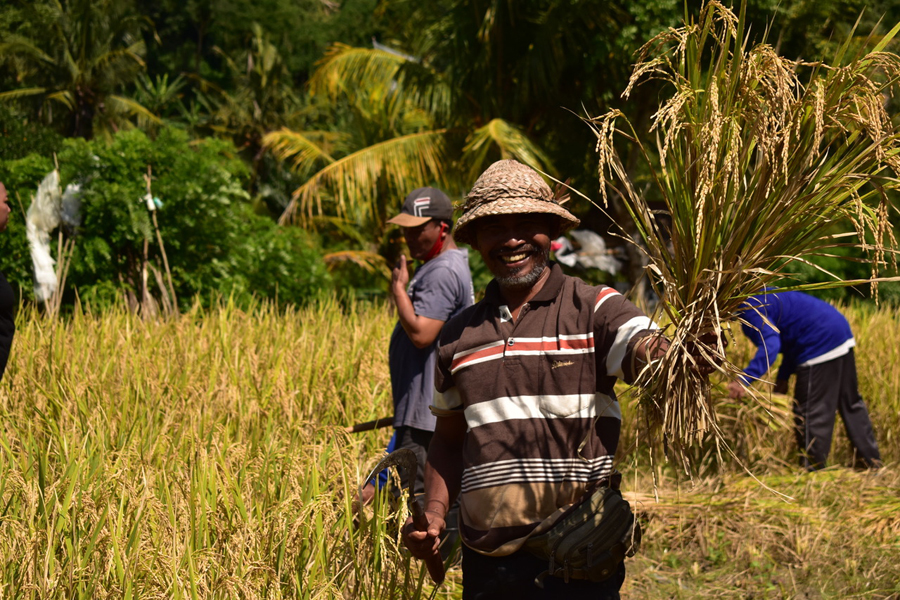
Ever since the COVID-19 outbreak, Bali’s tourism sector has suffered greatly due to the closing of international borders resulting in essentially no tourism. This has caused many of its residents to lose employment, especially those that work in the tourism industry including hospitality workers. Those who have lost work have been forced to retreat with their families to their native villages in the mountainsides to turn to daily work or farming to generate income for themselves. However, the remote conditions give them insufficient access to electricity, food supplies and medical facilities.
The pandemic has affected the Karangasem Regency gravely as it is the most impoverished region in Bali: one in three families live under the Indonesian poverty line. Working together with the local Banjar (Banjar Bakung) and Bali Rare Paduraksa (BRP), Discova’s project strives to resuscitate the growth and prosperity of Manggis Village residents.
The decline of Bali’s tourism and the lack of proper infrastructure to allow water to flow across the rice fields has massively impacted the Banjar, as Manggis Village residents’ source of income relies mainly on agriculture, animal farming and tourism.
Discova’s community development project implemented educational programmes on organic farming techniques, women’s empowerment and land regeneration to effectively re-establish farming to the local community of Manggis. The village’s irrigation system has been damaged for the last 4 years due to flooding and the initiation of the project has successfully helped with the repair of the village’s irrigation system, resulting in the return of the flow of water to the rice fields throughout the community.
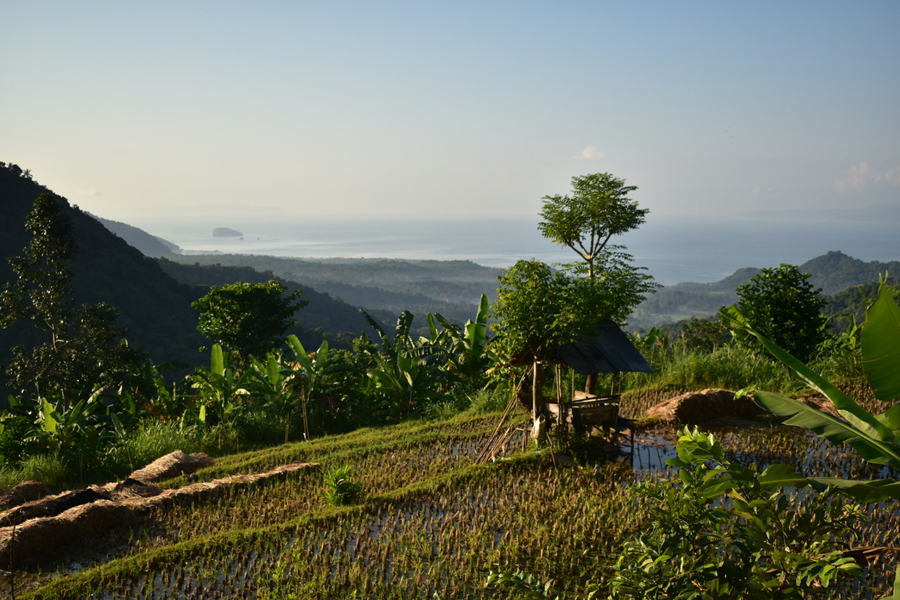
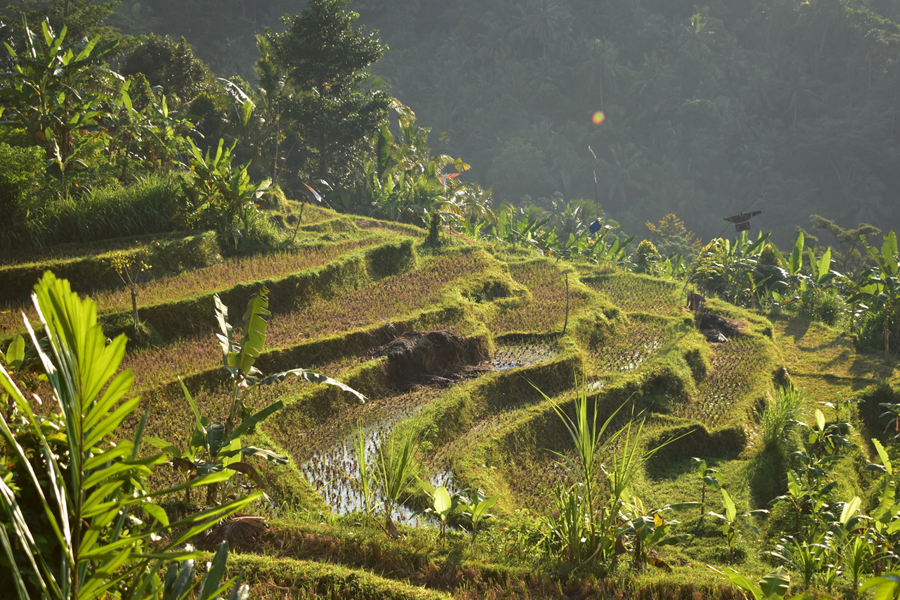
One of the main objectives of this community development project is to train local farmers in organic rice farming, which is achieved through conducting workshops organised by Bali Rare Paduraksa (BRP) to teach farmers how to utilise natural materials that are sourced from their village to produce organic fertiliser. This programme has resulted in the farmers’ first harvest of organic rice, securing the Organic Rice Certification from the Bali Province Government, getting packaged and ready for purchase.
“We are very excited to help the farmers of our communities generate additional income while also supporting Bail’s growing organic farming movement. We began our first phase with 22 farmers and 3 hectares of land. I have been moved by the enthusiasm and passion of the local people to move away from traditional farming. They are focused on working towards a healthier environment, but also want to ensure healthier diets, especially for their kids,” said Peter Christiansen, Indonesia Country Manager for Discova.
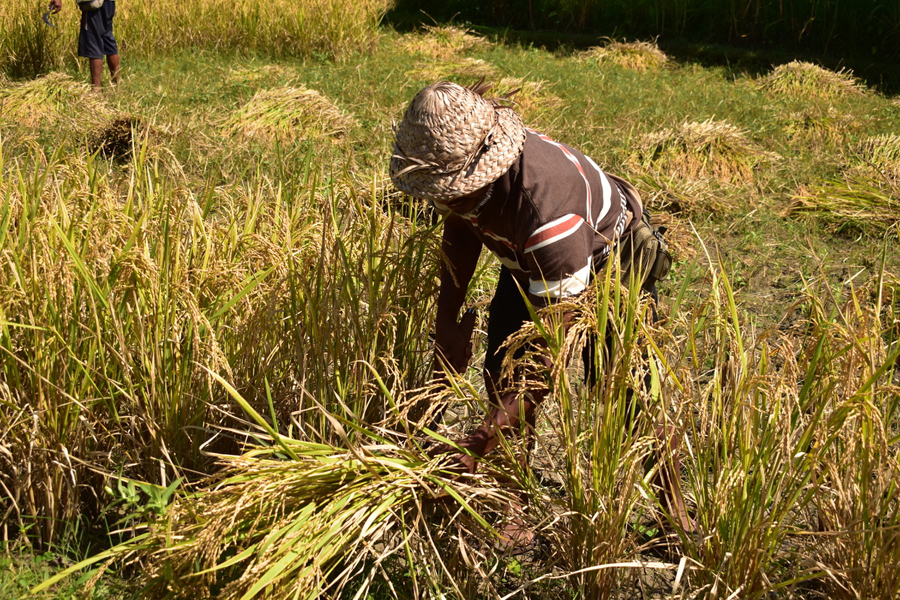
Discova has been leveraging its local and nationwide partnerships in the hospitality industry, such as Cross Hotels & Resorts, to aid the farmers to directly sell their organic produce, therefore helping them generate income. Additionally, Discova also partners up with educational travel agents and institutions to prompt students and travellers to the village and contribute to the project to help improve not only the quantity but the quality of the farmers’ crops, which also leads to additional flow of income for the community.
Moreover, as the majority of women in the village have low education, with an average graduation level of elementary school, and tend to marry young, the project also has a strong dedication in training the women with farming skills so that they can work alongside the men, growing rice and vegetables.
“This farm-to-table project is a long-term initiative and Discova have appointed a dedicated team to look after this. We are helping community farmers convert from conventional farming using chemical intervention, to more sustainable, organic methods. When international tourism returns to Bali, we will help out communities build their own businesses providing cooking classes, trekking, and cycling experiences to our travellers, generating direct income for locals,” added Peter.
For more information, please visit facebook.com/DiscovaLocal
Or go to: discova.com


